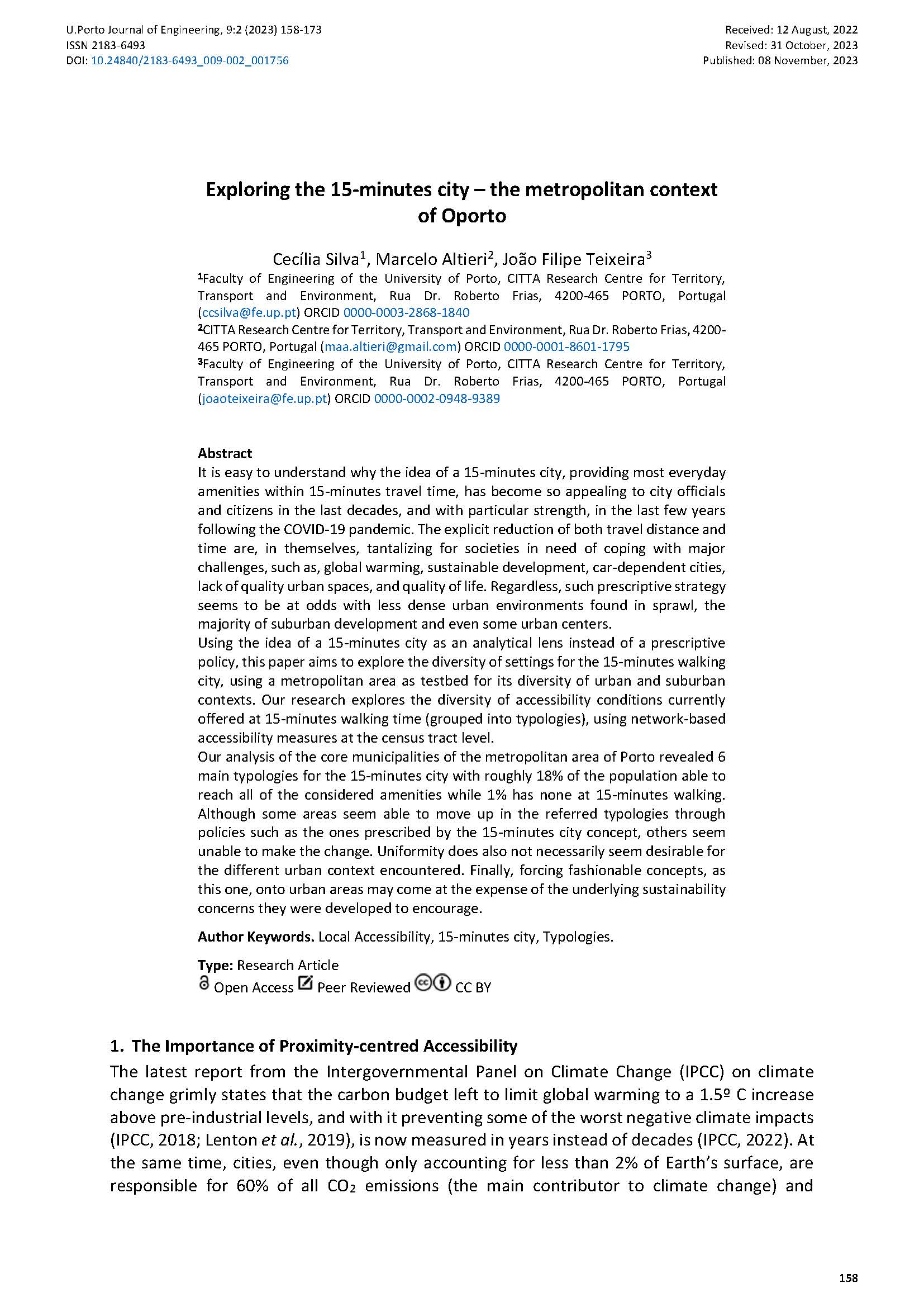Exploring the 15-minutes city: the metropolitan context of Oporto
Main Article Content
Abstract
It is easy to understand why the idea of a 15-minutes city, providing most everyday amenities within 15-minutes travel time, has become so appealing to city officials and citizens in the last decades, and with particular strength, in the last few years following the COVID-19 pandemic. The explicit reduction of both travel distance and time are, in themselves, tantalizing for societies in need of coping with major challenges, such as, global warming, sustainable development, car-dependent cities, lack of quality urban spaces, and quality of life. Regardless, such prescriptive strategy seems to be at odds with less dense urban environments found in sprawl, the majority of suburban development and even some urban centres.
Using the idea of a 15-minutes city as an analytical lens instead of a prescriptive policy, this paper aims to explore the diversity of settings for the 15-minutes city, using a metropolitan area as testbed for its diversity of urban and suburban contexts. Our research explores the diversity of accessibility conditions currently offered at 15-minutes walking time (grouped into typologies), using network-based accessibility measures at the census tract level.
Our analysis of the core municipalities of the metropolitan area of Porto revealed 6 main typologies for the 15-minutes city with roughly 18% of the population able to reach all of the considered amenities while 1% has none at 15-minutes walking. Although some areas seem able to move up in the referred typologies through policies such as the ones prescribed by the 15-minutes city concept, others seem unable to make the change. Uniformity does also not necessarily seem desirable for the different urban context encountered. Finally, forcing fashionable concepts, as this one, onto urban areas may come at the expense of the underlying sustainability concerns they were developed to encourage.
Downloads
Article Details

This work is licensed under a Creative Commons Attribution 4.0 International License.
Authors who publish with this journal agree to the following terms:
- Authors retain copyright and grant the journal right of first publication with the work simultaneously licensed under a Creative Commons Attribution License that allows others to share the work with an acknowledgement of the work's authorship and initial publication in this journal.
- Authors grant the journal the rights to provide the article in all forms and media so the article can be used on the latest technology even after publication and ensure its long-term preservation.
- Authors are able to enter into separate, additional contractual arrangements for the non-exclusive distribution of the journal's published version of the work (e.g., post it to an institutional repository or publish it in a book), with an acknowledgement of its initial publication in this journal.
- Authors are permitted and encouraged to post their work online (e.g., in institutional repositories or on their website) prior to and during the submission process, as it can lead to productive exchanges, as well as earlier and greater citation of published work (See The Effect of Open Access).

